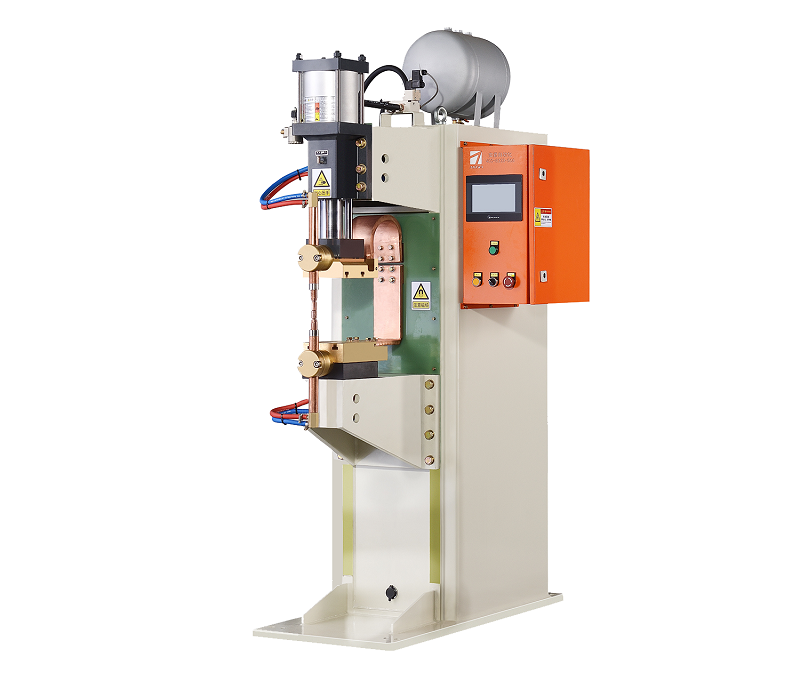This article explores the electrode materials used in medium frequency inverter spot welding machines. The choice of electrode material plays a crucial role in achieving high-quality welds, ensuring durability and reliability, and optimizing the overall welding process. Understanding the different electrode materials and their characteristics is essential for selecting the most suitable material for specific welding applications.

- Copper Electrodes: Copper is one of the most commonly used electrode materials in medium frequency inverter spot welding machines. It offers excellent electrical conductivity, high thermal conductivity, and good resistance to heat and wear. Copper electrodes provide stable and consistent welds, making them suitable for a wide range of applications.
- Copper Alloys: Various copper alloys, such as copper-chromium, copper-zirconium, and copper-nickel, are also utilized as electrode materials. These alloys exhibit improved hardness, better resistance to heat and wear, and enhanced electrical and thermal conductivity compared to pure copper. Copper alloys provide better performance in demanding welding conditions and can extend the electrode’s service life.
- Refractory Metal Electrodes: In certain specialized welding applications, refractory metals like molybdenum, tungsten, and their alloys are employed as electrode materials. These metals have high melting points, exceptional resistance to heat and wear, and excellent electrical conductivity. Refractory metal electrodes are commonly used for welding high-strength steels, stainless steels, and other materials with high melting temperatures.
- Composite Electrodes: Composite electrodes consist of a copper body with a surface coating or insert made of materials like copper-chromium, copper-zirconium, or refractory metals. These composite electrodes combine the advantages of different materials, providing enhanced durability, improved heat resistance, and optimized electrical conductivity. Composite electrodes are often preferred for challenging welding applications that require a balance between performance and cost-effectiveness.
The selection of electrode material in medium frequency inverter spot welding machines is crucial for achieving optimal welding results. Copper electrodes are widely used due to their excellent electrical and thermal conductivity. Copper alloys and refractory metals are employed when higher hardness, heat resistance, and wear resistance are required. Composite electrodes offer a combination of materials to meet specific welding demands. Understanding the characteristics and advantages of different electrode materials enables manufacturers and operators to choose the most suitable option for their specific welding applications. By selecting the appropriate electrode material, spot welding processes can achieve improved weld quality, increased efficiency, and enhanced overall performance.
Post time: May-31-2023







